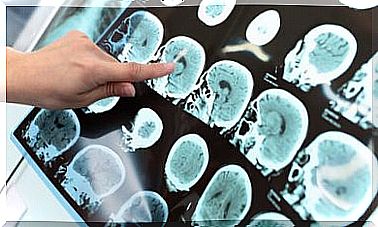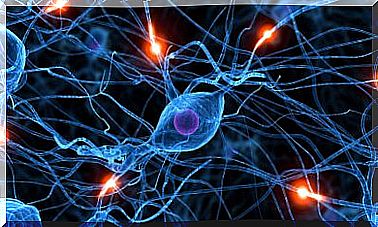What Is Night Eater Syndrome?
Have you ever binged on food? People with Night Eater Syndrome wake up in the middle of the night with an irrepressible desire for food.
However, these binges only hit at night, since during the day they have the feeling of lack of appetite or try to give an image by maintaining a healthy diet.
The late-night dining profile is nothing strange. It has a fairly high prevalence: 1 in 100 people suffer from night-eating syndrome.
What are binge eating?
A binge is a serious problem characterized by two facts:
- You eat an amount of food that is clearly higher than most people would eat in similar circumstances.
- There is a sense of lack of control. You cannot stop eating or control the amount or what you eat.
What are night eaters like?

Today the best known eating disorders are anorexia and bulimia. However, there are more people affected by this syndrome than by the two mentioned.
Affected people usually have certain problems controlling their emotions and it is frequent that they also suffer other problems such as:
- Anxiety.
- Depression.
- Insomnia.
- Low self-esteem.
In addition, according to the psychologist Montse Bascuas, the people who usually suffer from the nocturnal dining syndrome are people with obesity. These patients concentrate the highest percentage of their energy intake at dinner. It must be taken into account that the moment of ingestion of the nutrients has been shown to affect their metabolism. In this sense, consuming carbohydrate foods at night is not beneficial at all.
In fact, 20% of obese people admit that they have a strong urge to eat at night and more than 75% get up to eat. However, it must be borne in mind that, although it is more frequent in obese people, it does not mean that it does not occur in people with a normal weight.
What are the symptoms associated with night eater syndrome?
The symptoms and patterns are clear and are often repeated among different people with the disorder. In the first place and as we have mentioned, people with nocturnal eater syndrome do not eat anything or almost nothing throughout the day, since the appetite time at this time is very low.
They tend to have a higher mood in the morning, but throughout the day it decreases. In addition, it is very common for these patients to have sleep problems.
On the other hand, the most consumed foods are usually rich in carbohydrates. Among them are:
- Sweet.
- Pastries.
- Bread.
- Rice and pasta.
- Others.
These products are capable of influencing metabolic health, as stated in a study published in The Journal of Clinical Investigation . For this reason, you have to reduce your intake both during the day and at night.
Finally, mention that these people are usually aware of their problem and therefore have a low mood and feelings of guilt. The problem is exacerbated in stressful situations.
Tips to Avoid Night Eater Syndrome

Although the causes of nocturnal eating syndrome and its treatment are still being investigated, what is known is that initially it is not advisable to address the problem of overweight, in the case in which they are patients with this condition.
This is because unlike other eating disorders, this disorder is not related to concerns about weight or one’s own body image. Patients are not necessarily dissatisfied with their body.
It is for this reason that the priority is to understand where the anxiety that the patient feels comes from and why he tries to appease it with food. Therefore, the solution usually requires a multidisciplinary intervention involving experts in psychology, psychiatry and nutrition.
For this reason, the advice given below is taught from two different points of view:
From a nutritional point of view
The best thing to do is to follow the 4D’s rule:
- Diet: it is important that the patient follow an adequate diet adapted to his personal condition.
- Sport: practice physical exercise for at least 30 minutes a day.
- Rest: a good rest is essential for health, both in quantity and quality. This is evidenced by the most current scientific literature, where sleep problems are related to the appearance of diseases.
- Fun: reducing stress spending time on those things, hobbies or people is essential to improve health.
From a psychological point of view
The psychological approach would be cognitive-behavioral in order to help the person understand their behavior, at the same time that we help to organize certain thoughts and manage stress and anxiety related to the patient’s pathology.
Conclution
The syndrome of the nocturnal eater is a much more common disorder than the popularly known ones, such as anorexia or bulimia.
In addition, it is important to establish a multidisciplinary approach to be able to solve it, focusing first on the treatment of the anxiety that triggers binge eating.
Do not hesitate to contact a specialist if you have an eating disorder or have a high degree of anxiety.









